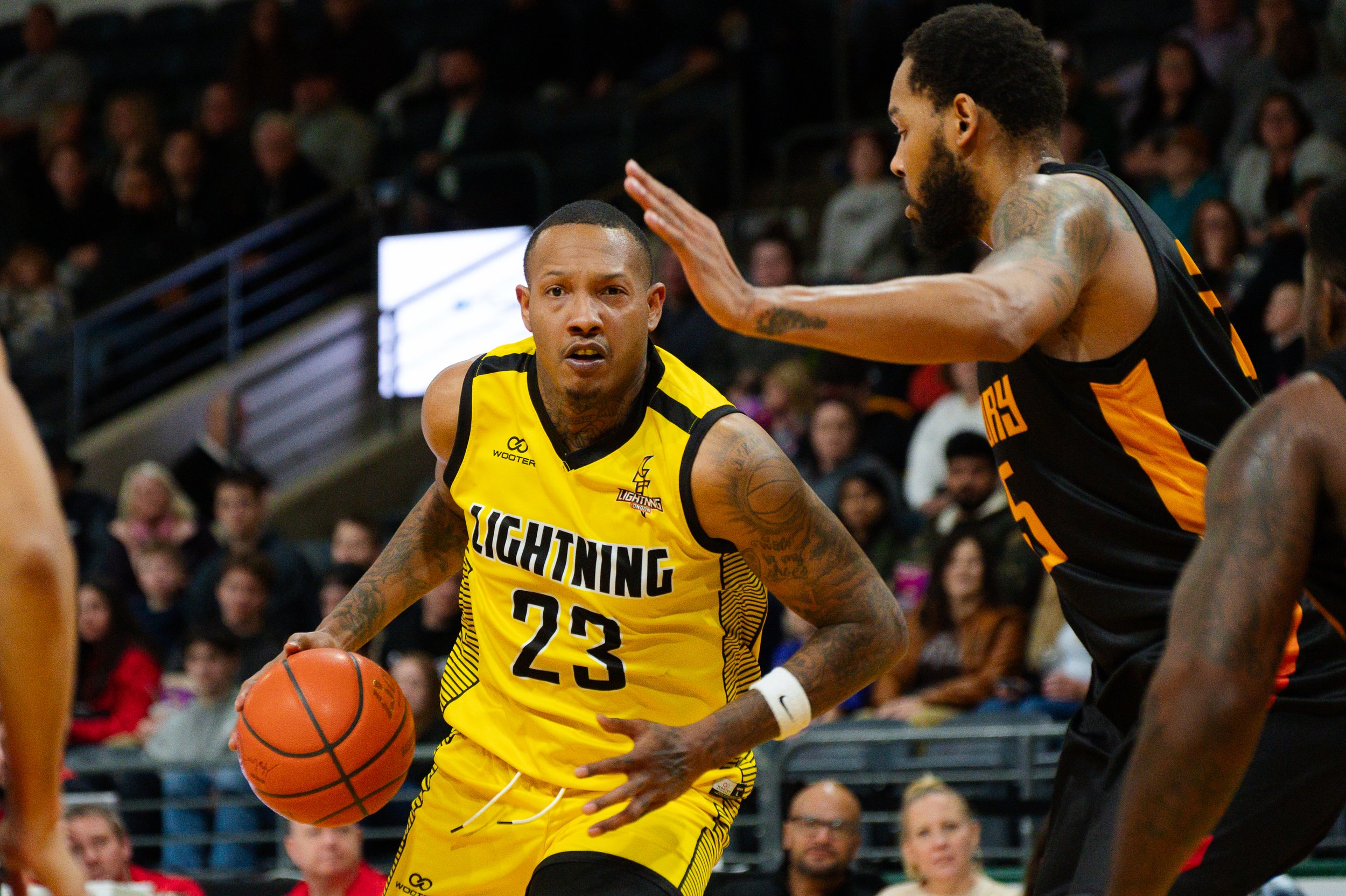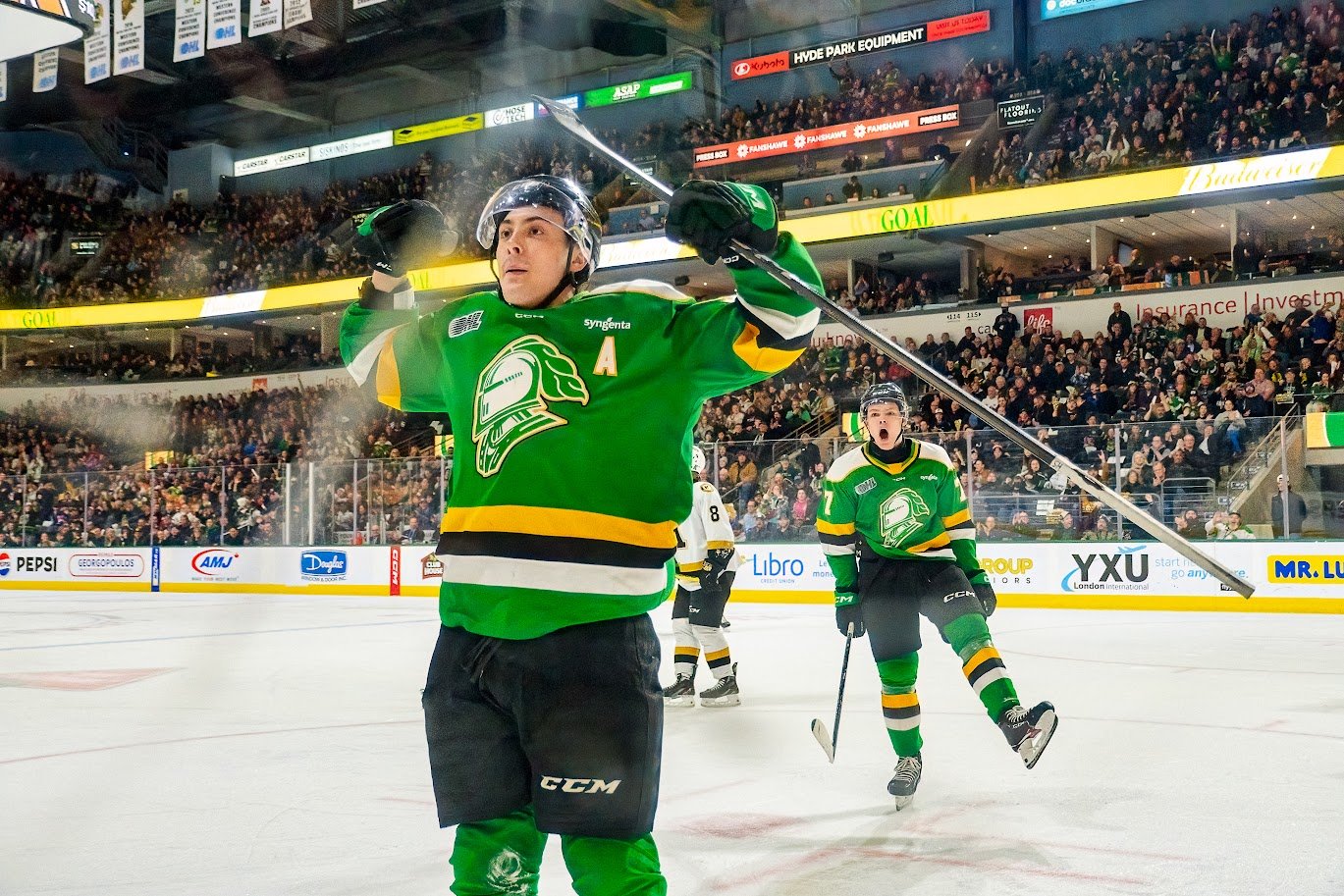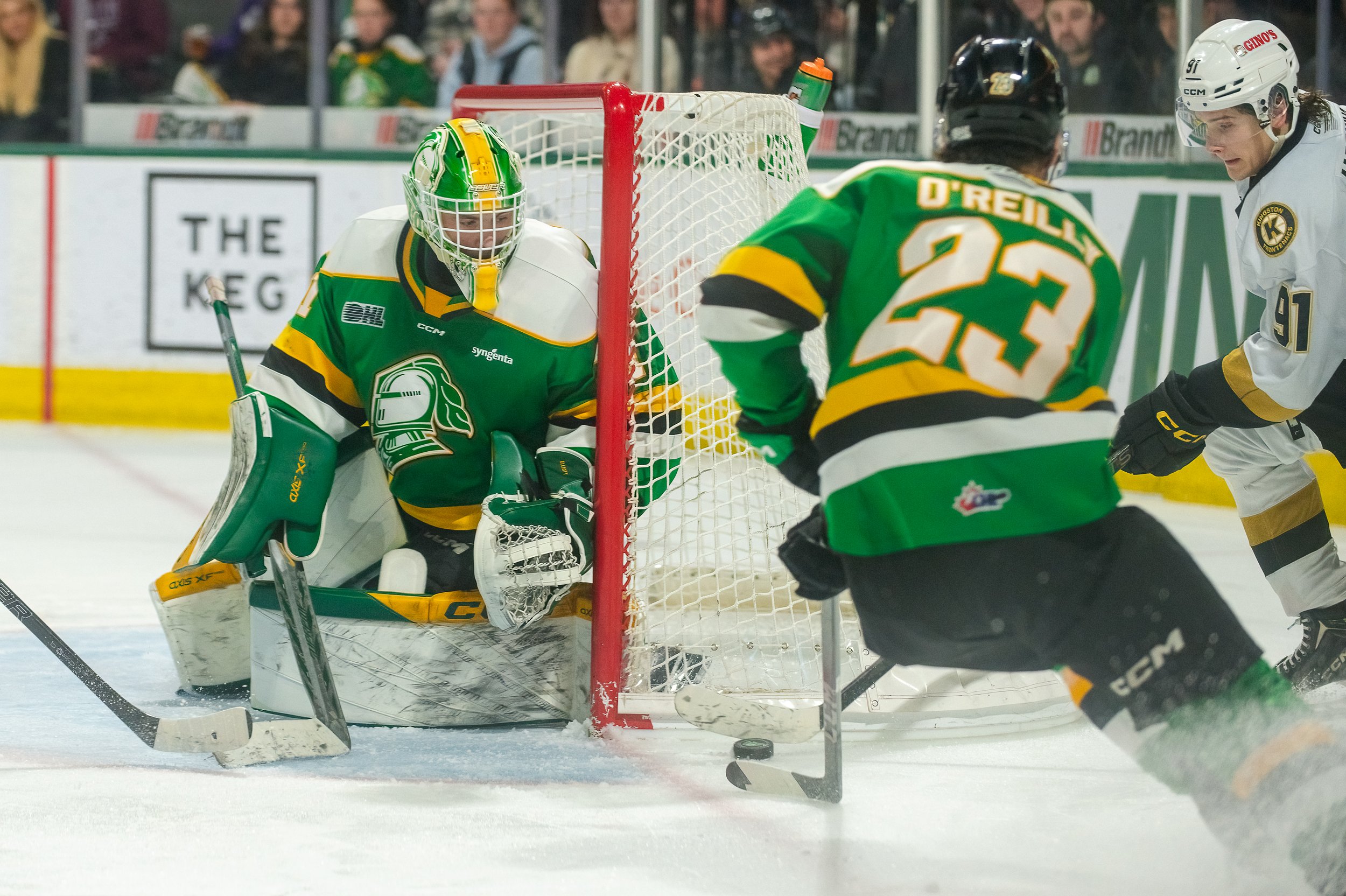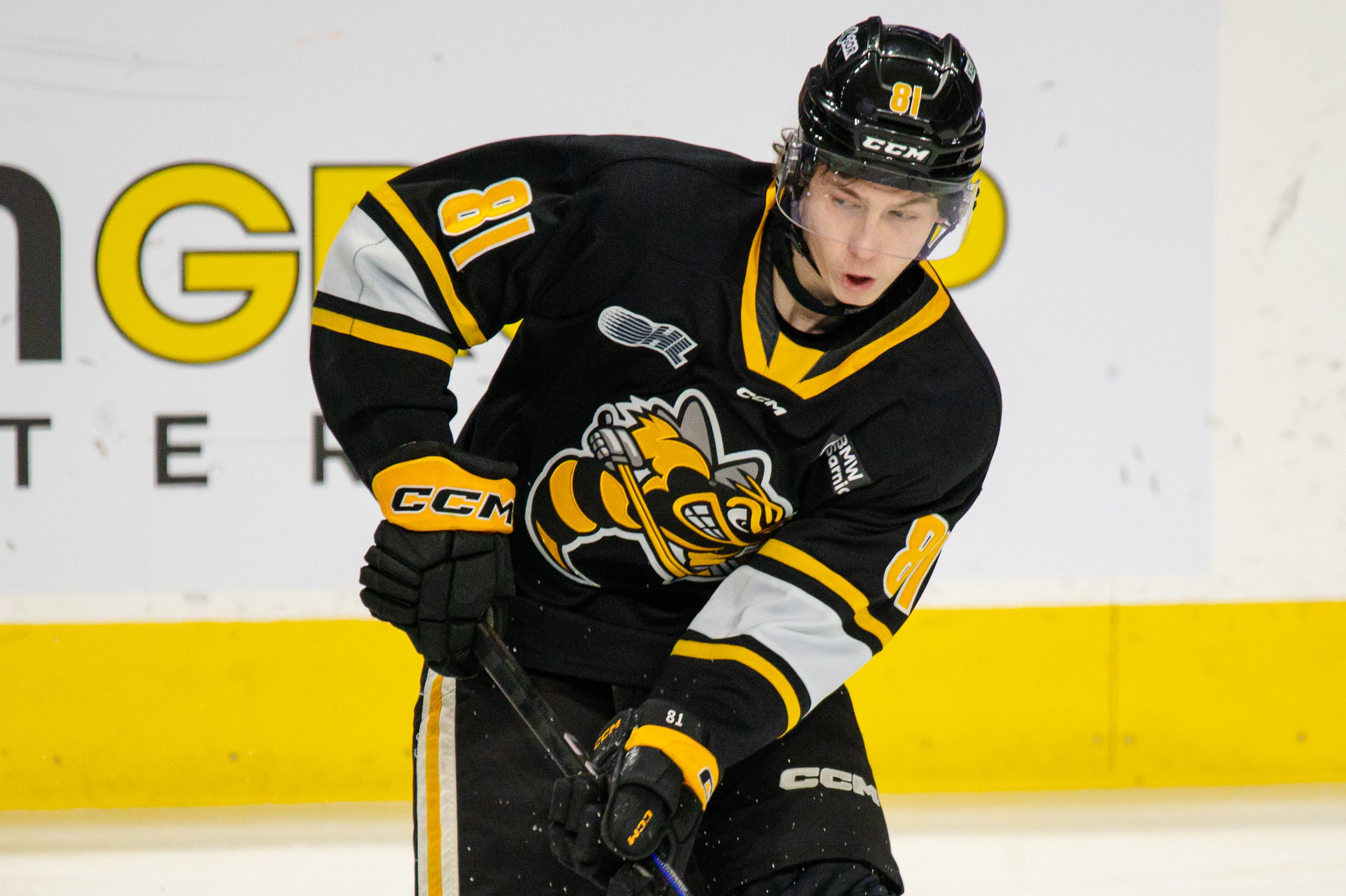Warner London’s humble, grateful champion
Damian Warner reached the top in August, winning the decathlon in Tokyo and earning the title ‘world’s greatest athlete.’ He’d prefer ‘Damian,’ thanks, and that you say hello at the grocery store.
(Photo: Roger Sedres / Athletics Canada).
* * *
Damian Warner is just like you and me.
Hear the man out. It’s important to him we believe him when he says that.
Yes, Warner is a gold medalist. Yes, he broke the Olympic record in the decathlon in August becoming just the fourth man in history to eclipse the 9,000-point mark in the competition. And, yes, he now holds the unofficial title of ‘world’s greatest athlete’ and official title of Canada’s Athlete of the Year.
But to Warner, he’s still Damian from London.
He’s a son and new father. He takes out the garbage, does the dishes, watches Netflix. He has fears and doubts. Hopes and dreams. Goals. He’s a normal person, just like us, and that’s how he wants us to view him.
“Sports is something I do. But just because I’m good at sports doesn’t mean I’m more important or better than somebody else,” Warner said. “I want people to see that I’m a normal person. I want them to come up to me in the grocery store and feel like I’m an approachable guy. I don’t want them to think I’m some person on a pedestal.”
Granted, just four months ago, he literally was on a pedestal, accepting his Olympic gold medal in Tokyo after a dominant effort in the grueling two-day decathlon, one of the jewels of the track-and-field card. His win earned him recognition across the country and the honour of carrying the Canadian flag in the Closing Ceremonies.
The win was the culmination of more than a decade on the decathlon circuit, thousands of hours of training, years of honing skills in an eclectic mix of events.
He claimed the bronze at the 2016 Olympics in Rio, up from his fifth-place finish at the 2012 Games in London. He finished first at the Commonwealth Games in 2015, and claimed gold twice at the Pan Am Games (Toronto 2015 and Lima 2019).
But this was the pinnacle – the top spot on the world’s biggest stage. And since the hoopla at The Games, it has been a whirlwind back home.
“We’ve been super busy doing a whole bunch of different events. Things have been going by really fast, but it’s been exciting and really fun,” Warner said. “Winning the Olympic gold has opened up some doors and opportunities, and I’m taking those as they come. But I really enjoy the life I live, and I don’t want it to change too much.”
Why would he? Happily partnered with his long-time sweetheart, Jen Cotten, a former elite track-and-field athlete in her own right. A father to Theo. And he loves the community where he grew up.
He is, after all, still Damian from London.
(Photo: Roger Sedres / Athletics Canada).
* * *
“We had to deal with all the COVID stuff …”
“We had our first competition (of the year) in Austria …”
“A lot of people have helped us out throughout our career …”
Damian Warner has a habit of referring to ‘we’ and ‘us’ when talking about his career and accomplishments. It might not be immediately clear what he means because track and field is an individual sport, right?
That’s not how Warner sees it.
“I’m the only athlete out there but I very much have a team. There are a lot of people who make results like the one I had this summer possible,” he said.
It starts with Gar Leyshon, Warner’s long-time coach (and English teacher) since Montcalm Secondary School.
There are other coaches, too, including gurus with the London Western Track and Field Club and Western University. There’s his agent, Jeff Fischer, and local developer and longtime supporter Vito Frijia of Southside Group.
“It takes a city to achieve this type of thing. London has been by my side throughout, starting back in high school when teachers came together to raise money for me to go to competitions,” Warner said. “I get messages and support all the time. It’s endless. I’m really proud to be from London; I’m really proud and happy with the support I’ve received. I’m going to try to do whatever I can to give back and show my thanks.”
One way he’s doing that is through speaking engagements with Leyshon. They’ve spoken to numerous young people, athletes and non-athletes alike, since the Olympics. This is where Warner shares his message about being ‘a normal guy’ and that these young people can do anything they set their mind to.
“That doesn’t have to mean winning a Stanley Cup or going to the Olympics – it can be anything, something you set out for yourself that you’d like to achieve and then work towards that,” he said. “That’s what excellence means to me. It’s about having goals and working towards something. That’s what’s truly important.”
He shares messages he’d have liked to have heard when he was younger.
“When Gar first got me to speak to schools, I didn’t think I had a story to tell,” Warner said. “But I’ve come to take pride in it. I look forward to speaking to kids now. I hope some of them can learn from my messages – set their sights high on something and dare to chase those goals.”
(Photo: Roger Sedres / Athletics Canada).
* * *
He’s reached the top. Pinnacle of his field. An Olympic champion.
So, now what?
He’s already back training and looking ahead to the next competition. He intends to defend his title at the Paris Games in 2024, and he has already set down some goals for himself.
“Winning an individual outdoor championship. That’s something I haven’t done. I’ve never won the gold medal at the World Championship, so that’s a big thing for me,” he said. “And I still want to become the decathlon world record holder. I’ll have some opportunities to (chase those goals) pretty soon.”
With the event skipped in 2021, the World Athletics Championships will take place in back-to-back years (Eugene, Ore., in 2022, and Budapest, Hungary in 2023).
No doubt, the ongoing pandemic will complicate training, but if anyone’s proven he can overcome any hurdle, it’s Warner.
Unable to train at Western or travel to the United States for his pre-Tokyo preparation, he took to Farquharson Arena, a 66-year-old facility located in Old South that Warner and his team turned into a makeshift decathlon training centre.
At his first competition of the season, the Hypo-Meeting in Austria in late May, Warner didn’t know what to expect after training in a hockey rink. He posted a personal best and Canadian record (at the time), just under 9,000 points, winning six events in the process.
“I thought, ‘OK, I’m in pretty good shape. The training after that was relatively good. I didn’t have any injuries, and I did all the training I wanted to leading up to the Olympics. I was super adaptable. I knew exactly what I needed to do. I just went out and competed freely, and it worked out really well.”
(Photo: Roger Sedres / Athletics Canada).
* * *
Warner seems almost impossibly humble – but it’s genuine.
He credits his mother for that. The Olympian came from humble beginnings, but his athletic abilities were clear from the start. His mom was quick to provide some perspective.
“When I was younger, she would tell me that there’s always somebody out there bigger than you, stronger than you, smarter, faster, better looking than you. She didn’t mean it as an insult; she meant it as (a reminder) not to get too high on yourself,” Warner said. “That grounded me a little bit.”
He’s never forgotten his roots. He spent a time in Calgary (following the 2016 Games) to train under Les Gramantik, who coached Michael Smith, Canada’s previous decathlete record-holder. It wasn’t the right fit. He wanted to return home – to his family, his coaches, and his community.
Back in London following the Tokyo Games, he was thrilled to attend a celebration at Labatt Park for some of the city’s Olympians, including fellow gold medalists (swimmer Maggie Mac Neil and rower Susanne Grainger). The athletes got the chance to experience what they hadn’t at the empty Tokyo facilities – cheers, especially from their hometown supporters.
“That was really cool – to come home, see all the people cheering, have the kids coming up and wanting to take photos. That’s what it’s all about. It was a really special moment to share with people here in London.”
Then he went home. Because, despite all his accomplishments and accolades, despite being the ‘world’s greatest athlete,’ he’s just a normal guy, after all.
He’s still just Damian from London.













Knight Watch: London has won eight straight to open playoffs. Can they continue momentum against Kitchener Rangers?; Star goalie Jackson Parsons gives Kitchener a chance. Columnist Jake Jeffrey previews the matchup …